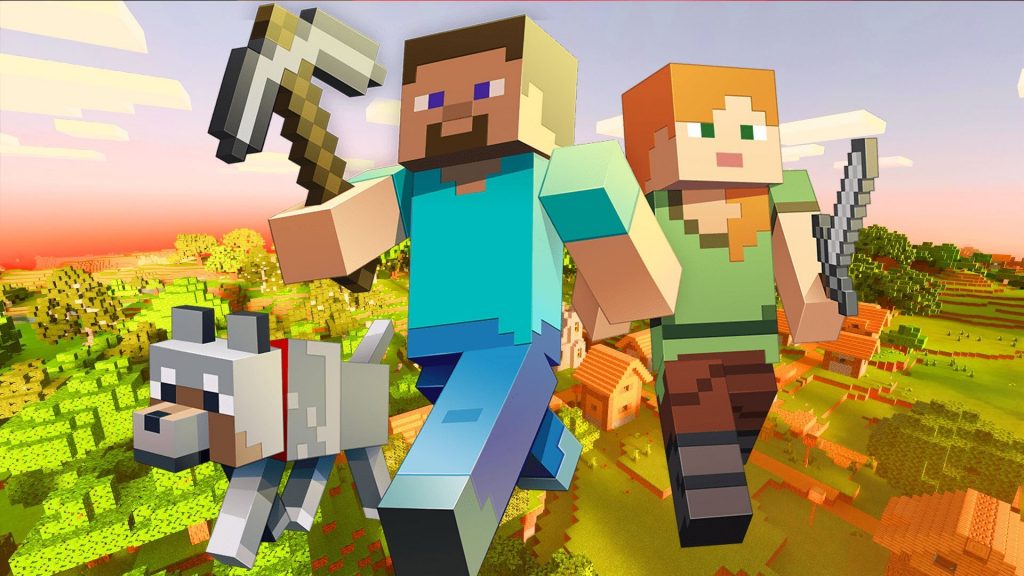‘One who is seeking a reward is never free’ says Krishnamurti, and this statement can be extended to the whole of purposeful behaviour. When we seek to achieve our purposes we are seeking a reward – would we devote ourselves to our goal so much if we didn’t expect to get the ‘reward’ of the satisfaction that comes with their attainment, after all? Inasmuch as we are trying to attain some defined outcome or other we are not free, therefore. This is of course in direct contradiction of our normal way of looking at things where we see freedom as lying in the possibility of us being able to attain our goals. We don’t look beyond the fulfilment of the goal and as a result of our ‘short-sightedness’ in this regard we assume that what comes after this magical moment is freedom; if we took the long view however we’d see that what comes after the attainment of the goal is simply more goals, and more goals after that, but we never do take ‘the long view’…
Anything we do in order to obtain pleasure or satisfaction or approval from others is ‘reward seeking’ and almost all our behaviour is extrinsically driven in this way – we do the things we do in order to feel good as a result and this is pretty much the natural order of things. The natural order of things is for us not to be free, in other words! This isn’t to say that there isn’t such a thing as ‘freedom’, or that we can’t ever be free, simply that because we see everything back-to-front (in that we think freedom lies in ‘successful controlling’) we are always going to be missing it, even though it’s right there under our noses the whole time. We believe that we have to make a special sort of effort in order to win freedom, not seeing that our ‘special efforts’ take us away from freedom. When we make a special effort then what we’re doing is that we are ‘narrowing our focus’ so that it seems like the answer to everything is going to lie within the confines of the little box that we have made by restricting our attention in this way. What is happening now is that we are playing a game therefore – we are pretending (without knowing it) that what lies within the box is ‘the whole of reality’ so that when we solve the problem as it is presented to us by the game we have achieved something significant. We haven’t however because that’s only a game – it only means something on its own terms and this means that it doesn’t actually mean anything.
We are not free in this case because we are trapped in a game that we don’t see to be a game, putting our energy into trying to solve problems that don’t really mean anything at all. No matter how creative we are in our interpretation of what the word ‘freedom’ means, we can never say that it is this. A more annoying situation it would be impossible to imagine! This is what happens every time we strain ourselves to either ‘accomplish something’ or ‘get away from something’. All purposeful or directed action narrows our attention in this way – all purposes (or goals) are by their very nature narrow, after all. Just as long as I take my purpose seriously (i.e. just as long as I actually believe in it) I’m going to be hemmed in by my assumed context, I’m going to be trapped within a closed world or game. If I don’t take my purpose seriously – which is perfectly possible – then the ‘drawback’ here is that I won’t be able to obtain any pleasure or satisfaction from achieving it! This is a very serious drawback in one way because the whole point of everything I’m doing is to seek pleasure (or ‘seek a reward’). Nothing that’s going on here is conscious however and so there is no question of me making an actual decision as to whether I’m going to take my purposes seriously or not. From my point of view all that’s happening is that I am pursuing pleasure or seeking a reward and so my attention is fixed on this task; as I get closer and closer to achieving the goal the excitement grows, the promise of satisfaction becomes overwhelming and so – naturally enough – I become more and more heedless as regards anything other than the desired conclusion that I am pressing for. The mouse only cares for the cheese, until it is too late and the trap is sprung.
Saying that ‘the trap is sprung’ means that we can no longer see that the game is a game or that we cannot help taking its purposes seriously. Saying that ‘we can’t help taking our purposes seriously’ means that we are never free from them, obviously enough, and this is much more of an affliction than it might at first sound. Essentially, we’ve lost all sense of humour and so now we no longer care about anything apart from ‘chasing the goal’ the whole time. Everything is about attaining the goal and this is crazy stuff because the goals in question are only so important to us because we ourselves have agreed for them to be. We are – in other words – fixated upon the arbitrary construct to the exclusion of all else. We are fixated upon this business of winning or losing in the game to the extent that the game doesn’t seem like a game at all but – on the contrary – the most important thing there could ever be. So when we go back to Krishnamurti’s statement that ‘the one who is seeking reward is never free’ we can see that there is a lot more to this than we might initially have thought. Not only is of the case that we are ‘slaves to the purpose’ is such that we absolutely can’t help taking it seriously (which means that it’s all that we care about) it is also true that the purpose is actually defining us. The purpose defines us because it is saying we are about (which is to say, we are defined as ‘the seeker after the goal’). The game provides us with everything in other words; it provides us with the full package. The game provides those with the full package but at the same time it’s a very limited kind of a package – it’s a downright shoddy one, as Krishnamurti says. It is thanks to the game that I get to be identified with the player of the game (i.e. ‘the one who hopes to attain the reward’) but the one who hopes to obtain that reward is also the one who fears suffering the punishment if they fail. The one who strives to succeed is also the one who dreads failure and so what sort of mixed-up situation is this? ‘Striving to succeed’ may look like freedom but it most certainly isn’t – how can it be when ‘straining to win’ is the same as ‘straining not to lose’? How is running away from the ever present spectre of failure freedom? Just how do we get to be silly enough to say that they can be such a thing as ‘freedom within a game’ when everything within a game is predetermined, when the limited world that we have been given to operate within (or live within) has been provided for us by some external mechanical authority? How on earth can we talk about ‘freedom’ when who we think we are has been decided upon ‘from the outside’, when it has been ‘arbitrarily imposed on us’?
When we are seeking a reward (or in any way trying to attain a desired outcome) what we are actually doing is chasing our own projections. All rewards’ are projections of the self for the simple reason that they can be no such thing as ‘the reward’ without there being the one who is to be rewarded, any more than there could be such a thing as ‘victory’ without there being someone who is going to be victorious. Whilst it is obvious enough that they can’t be a goal without the one who is striving after it, it is of course also true that there can’t be a ‘striver’ without there being something to strive after. This may not seem like a particularly revolutionary insight to be coming out with but the point is that the self can never not strive – it is by its very nature ‘a striver’ (or ‘a struggler’) and were there to be no struggling and striving then there would be no self. The other way to put this is to say that if there was no psychological time then there could be no self – psychological time is the time in which we are waiting to achieve our goals (or as we could also say, it is the time in which we are hoping to escape whatever it is we fear). When we are chasing what we want (or fleeing what we don’t want) then this creates psychological time and psychological time creates the I-Concept! We could therefore say that ‘psychological time’ is a way of talking about the Desire Realm (or the Fear World, which is the same thing only seen backwards). In the Desire Realm – or in the Fear World – there is no freedom, only compulsion, and this is what creates the self.
The self isn’t an actual genuine state of being (we might say) but rather it is a state of ‘waiting for being’ that can never be fulfilled. In the case of desire, we imagine that we will be rewarded by this being when we obtain our goal, and in the case of fear we hold onto the hope that we will be rewarded by being when we finally get away from what we fear. This is never going to happen however since it is only our hoping that makes the mind-created self seems so real, so central. Even though the only thing that keeps us going when were struggling to obtain a goal is the anticipation of how wonderfully good it’s going to feel when we do (and even though the only thing that keeps us on our weary feet when were struggling desperately to avoid the ‘feared eventuality’ is a thought of what a great relief it will be when (or if) we manage to escape. It’s only our ‘living in our goals’ (i.e. it’s only our unfree chasing or fleeing) that allows our subjectively perceived ‘centralised reality’ as corpuscular selves or egos. The chase is better than the catch, in other words. Very oddly therefore, whilst our whole raison d’être is to achieve the desired outcome or avoid the feared one, on another (inaccessible level) of logic we don’t actually want this at all since without ‘the game of the self’ (which equals striving) they can be no self. If ever there was a ‘conflicted motivation’ this is it, therefore! This is a self-contradiction that is never going to get resolved, no matter how many therapists we see…
The self-contradiction – just to go through it one last time – is that our life is made up of struggling and striving and all this effort is for the sake of getting to the end of struggling and striving. We don’t actually want to be struggling and striving but we think if we struggle hard enough then one day we won’t have to struggle anymore. The struggling is suffering therefore and we are only able to bear carrying on with it because of the thought of ‘the reward’. The reward however is an empty projection, a blank goal, an illusion that can never come true – all there ever is for the mind-created self is struggling, all there ever is for it is suffering. ‘False hope’ is the only good thing it has going for it and false hope a sword with two edges – it comforts us only to the extent that it lets us down! Needless to say, if the self could ever see this fundamental self-contradiction right at the heart of its existence than its motivational system would be banjaxed completely and then wouldn’t be able to keep on with the game. It would give up the struggle that is ensuring its ‘separation from reality’, so to speak. It would give up the non-stop striving that is ensuring the creation of its private or closed world. Our effort doesn’t bring us any closer to ‘being’ after all – our efforts just make sure that we never get what we (untruthfully) say we want! This is the central perversity of our situation – that we say we want freedom when this is the very last thing we ever want to have any dealings with. The self is very well insulated from seeing the truth of its situation however – nothing could be better insulated from seeing the truth than the mind-created self…






